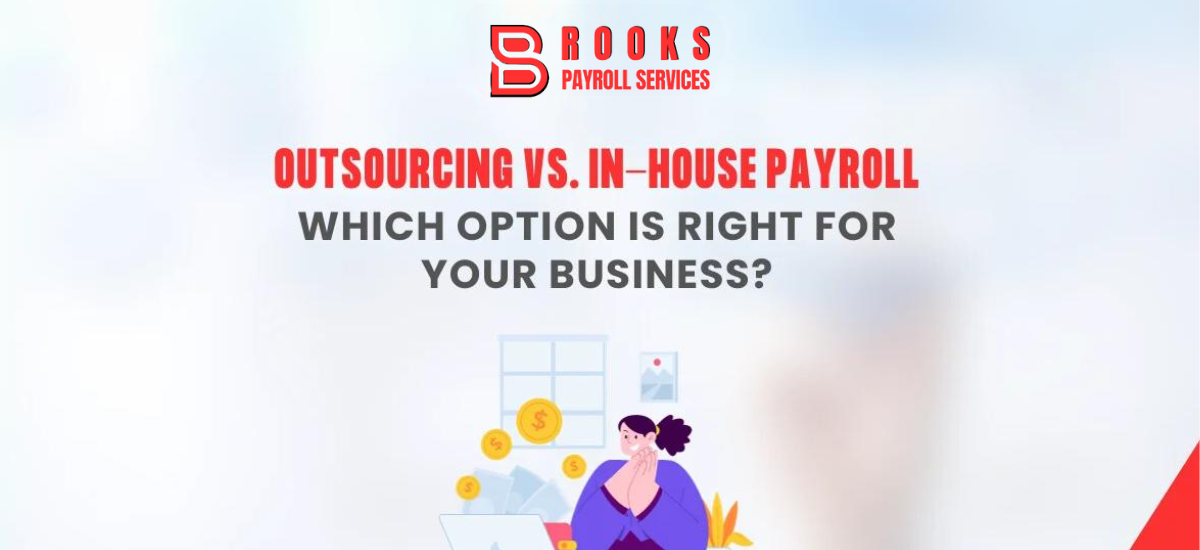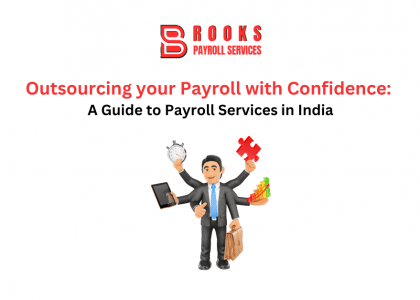Ensuring that your employees are paid correctly and on time is a crucial responsibility for any business. However, despite its apparent simplicity, managing payroll can present numerous challenges and obstacles that need to be addressed in each pay cycle.
These challenges include dealing with various pay adjustments, such as changes in working hours, sabbaticals, or family leaves that affect some employees’ regular salaries. Additionally, freelancers and contractors, especially in the context of off-payroll working rules, must also be considered. All this is before factoring in taxes, pension contributions, and compliance with other legal requirements.
Consequently, your company must have a proficient team well-versed in payroll processes and compliance.
In such a scenario, you may find yourself torn between two options: hiring an in-house team of payroll professionals or outsourcing your payroll to a specialized service provider. The choice ultimately depends on your business’s specific needs, as each option comes with its own set of advantages. Let’s delve into the distinctions between in-house and outsourced payroll, explore their benefits, and consider the factors to weigh when determining the best fit for your business.
In-House Payroll:
In-house payroll refers to the practice of processing payroll internally within your company. Payroll clerks who handle this function are typically part of the finance or human resources departments and are compensated using the same payroll system they manage.
Payroll Outsourcing:
Payroll outsourcing involves enlisting an external service provider to handle the administrative and compliance aspects of your payroll. The complexity of these outsourced solutions can vary, from managing specific payroll components to overseeing the entire process.
Outsourcing vs. In-House Payroll:
When your business maintains an internal payroll division responsible for payroll processing, this constitutes an in-house payroll arrangement. These professionals work directly for your company and utilize the payroll system under your control. Typically housed within the HR or finance departments, in-house payroll personnel gather and verify payroll data and perform complete pay run calculations. With an internal team, you have the flexibility to implement necessary adjustments and make informed decisions.
In contrast, when you outsource payroll, your business partners with an external payroll service provider to handle all payroll-related tasks. These services can encompass end-to-end payroll processing, quarterly TDS filings, Form 16 generation, ensuring compliance with employment and payroll regulations, and delivering comprehensive payroll services. A reputable outsourced payroll solution saves time and money while providing the impression that the service provider is an extension of your in-house team. The level of outsourced payroll assistance can typically be tailored to your specific needs.
The decision of whether to outsource payroll depends on the complexity of your business’s payroll requirements and the level of expertise available in-house. Some businesses may discover that outsourcing saves them time and money, eliminating the need to hire additional payroll staff or purchase costly software. Moreover, it ensures ongoing compliance with evolving wage legislation.
Pros and Cons of Outsourcing Payroll:
Outsourcing payroll involves partnering with an experienced service provider to manage the payroll process. Consider the primary advantages and disadvantages of this approach:
Pros:
Cost Savings: Many businesses find that outsourcing payroll ultimately reduces costs compared to in-house processing. When assessing your budget, consider the full range of expenses associated with both options.
Time Efficiency: Automated payroll systems, like outsourcing, can save businesses substantial time and effort. It’s akin to having a dedicated, error-free employee who works continuously, doesn’t take breaks, and consistently completes tasks on schedule. Reflect on how your current internal payroll handlers allocate their time—outsourcing can maximize their availability for other tasks.
Streamlined Integrations: Outsourced payroll services often offer integrations that streamline various business functions, such as payroll, accounting, HR, onboarding, and benefits management.
Cons:
Limited Control: Outsourced payroll services typically automate much of the payroll process, potentially reducing your control over the system. While this can be convenient for some, it may lead to less understanding of how the payroll system operates.
Paying for Unneeded Features: Some providers offer limited subscription options, potentially leading to payment for features your business doesn’t require.
Integration Limitations: Outsourced payroll services may offer specific integrations that may not align with your business’s software preferences, requiring you to adapt to new software and overcome potential learning curves.
Benefits of In-House Payroll Processing: Managing payroll in-house grants you greater control over the process. Your internal payroll team can help modify existing procedures or develop a system tailored to your needs. This allows for swift resolution of issues and immediate adjustments, simplifying the payroll process. You only need to follow your payment procedures once calculations are complete, making off-cycle adjustments as needed.
Having control over your payroll data enables you to easily access historical information. Qualified accountants can analyze this data to identify areas for cost savings and tax optimization. Additionally, the size of your business plays a significant role in this decision. Smaller businesses may find that a member of the HR or finance team can effectively manage payroll needs. Larger companies can spread payroll processing costs across a larger employee base, making in-house hiring more feasible.
Factors to Consider: In-House vs. Outsourced Payroll: When deciding between in-house and outsourced payroll, several factors come into play. Given that payroll data includes sensitive information like bank details and salaries, security should be a top concern. Ensure your chosen provider offers robust security measures, minimal downtime, and reliable business continuity.
Consider how easily your chosen payroll software integrates with other business systems. Payroll relies on data, much of which originates from your primary HR system. Choosing software that seamlessly interfaces with your HR system can expedite pay runs, enhance accuracy, and improve overall efficiency.
Additionally, ensure that your payroll outsourcing provider supports API connectivity integrations, enabling secure data sharing across applications. Solid automation of processes and calculation routines integrated into your systems is essential for gathering, interpreting, and applying payroll data, payments, and deductions. Reliable customer support from your provider is crucial, especially when resolving payroll-related issues or adapting to new laws.
In conclusion, whether you opt for in-house or outsourced payroll, the decision should align with your business’s unique needs, size, and goals. Consider the advantages and disadvantages of each option carefully to make an informed choice that ensures efficient payroll management and compliance.







